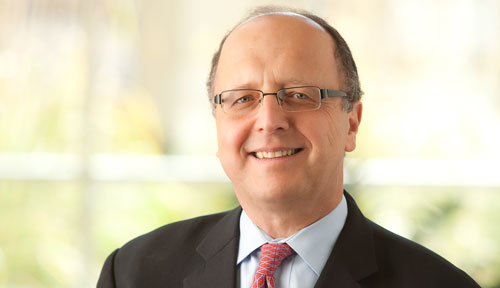A UNMC stroke specialist, Pierre Fayad, M.D., was a local principal investigator in a major stroke study featured in the March 20 issue of The New England Journal of Medicine.
The study – “Recurrent Stroke Comparing PFO Closure to Established Current Standard of Care Treatment (RESPECT)” – enrolled 980 patients between 18 and 60 years of age who had suffered a stroke of unknown cause and who had a hole in the wall of the heart (known as a patent foramen ovale or PFO).
|
|
Investigators attempted to determine the best treatment to prevent further strokes – either closing the hole with a button device along with anti-clotting medicines, or anti-clotting medicines alone.
It is estimated that between 20 and 40 percent of all people have a PFO, said Dr. Fayad, the Reynolds Centennial Professor of Neurological Sciences at UNMC and director of the Nebraska Stroke Center at UNMC’s hospital partner, The Nebraska Medical Center.
UNMC was one of 69 sites participating in the trial over the past several years, contributing 14 patients to the study – seven of whom had their hole closed and seven of whom were treated with anti-clotting medicines alone.
Researchers found that the group that received the button device showed a trend toward having fewer recurrent strokes than those receiving standard care with anti-clotting medications (nine versus 16). However, the difference did not meet the criteria for definitive rigorous statistical tests.
Dr. Fayad said results of the trial address an important issue in stroke prevention that primarily relates to young adults with stroke and a PFO.
“The management of this group of patients has been very controversial for years,” he said. “Although the results of the RESPECT study together with results from another study called the PC-Trial published in the same issue of the journal do not clear the fog, they provide critical information that highlight the importance of patient selection, device type and importance of long-term follow-up in studying such patients.
“There is a suggestion that a long-term benefit for closing the hole may exist for stroke prevention, and we are continuing to follow the patients enrolled in the study to determine whether that will continue to be true.”
Dr. Fayad cautioned that further investigation is needed.
The FDA is reviewing the results of all studies and will decide whether there is enough beneficial evidence to approve such devices for regular use.
